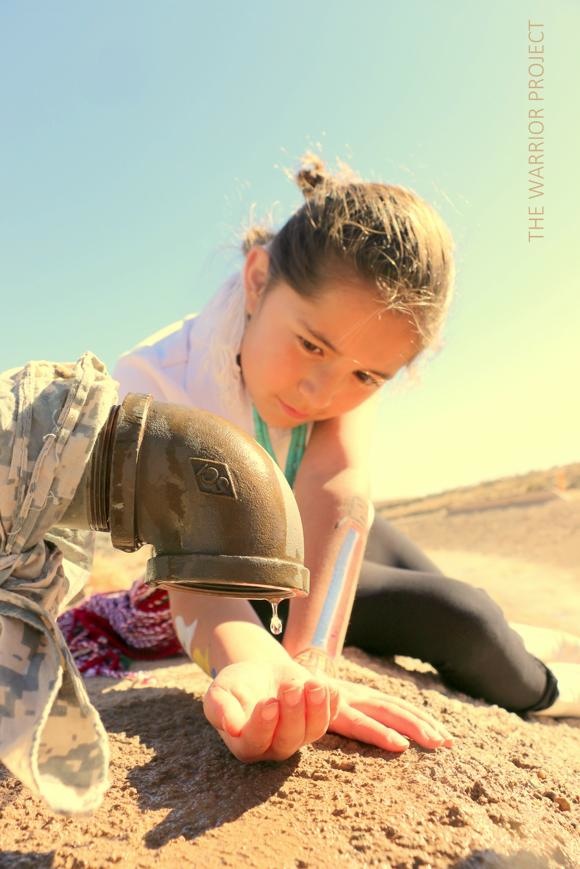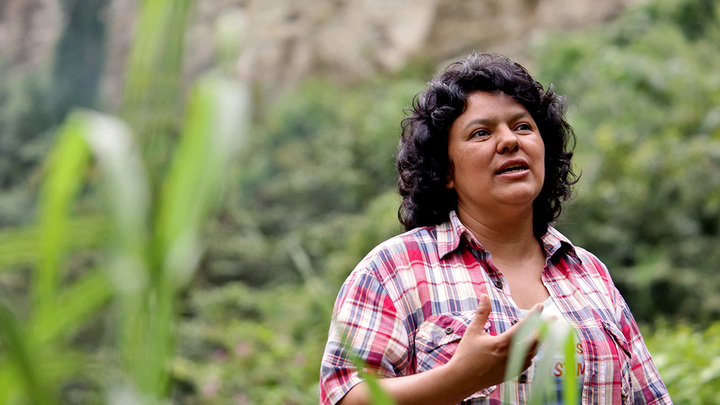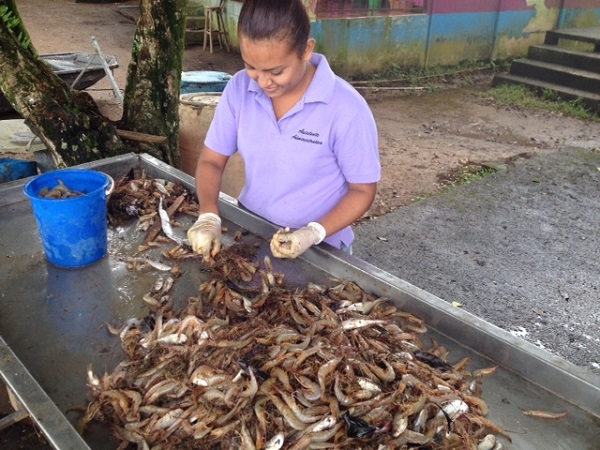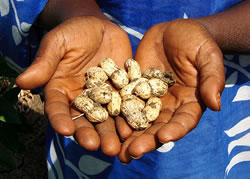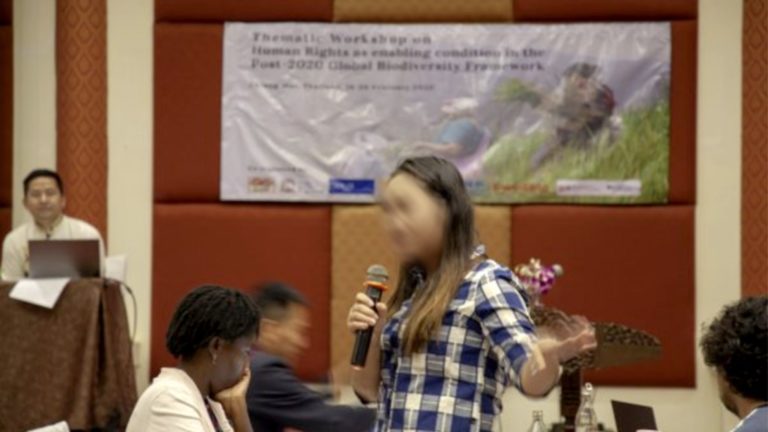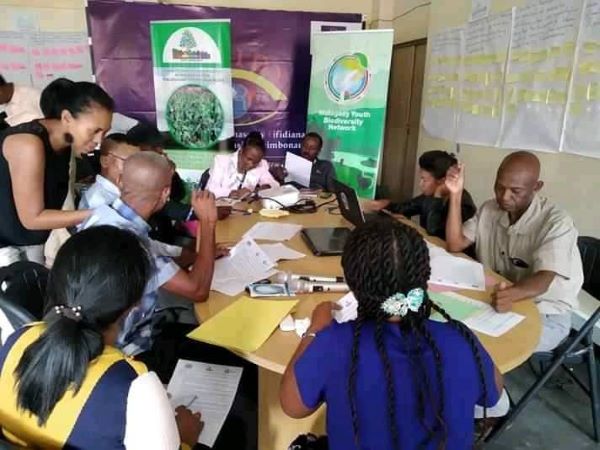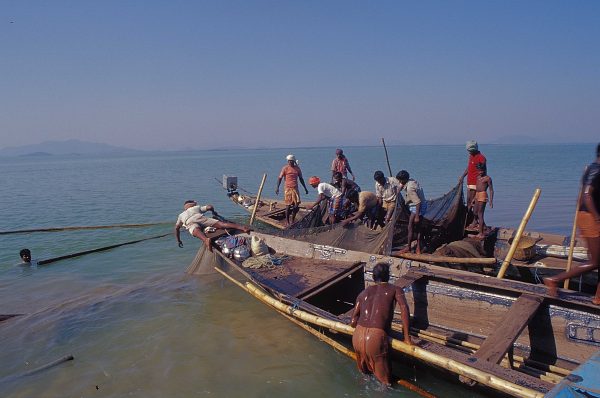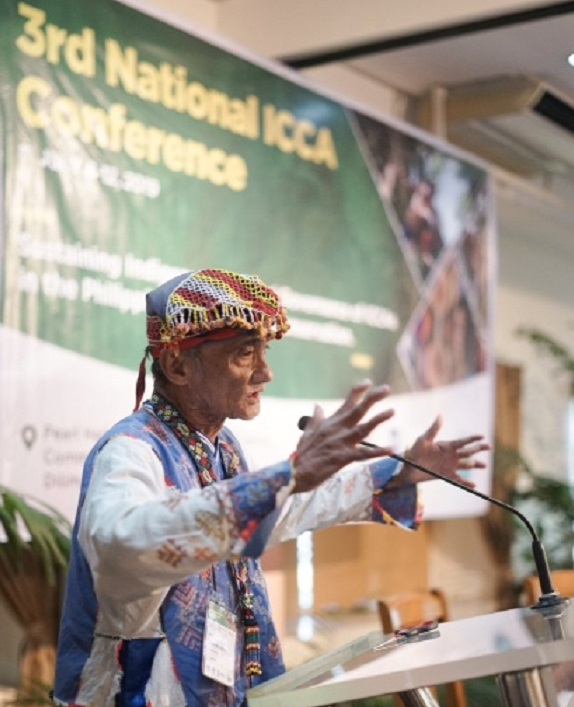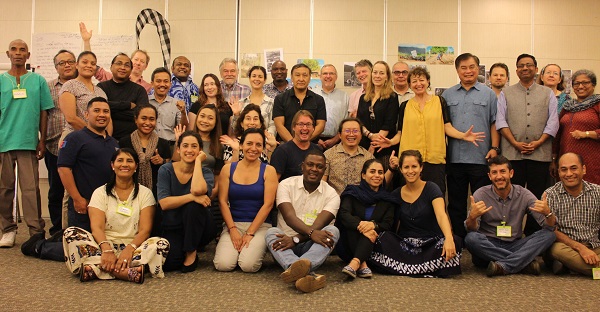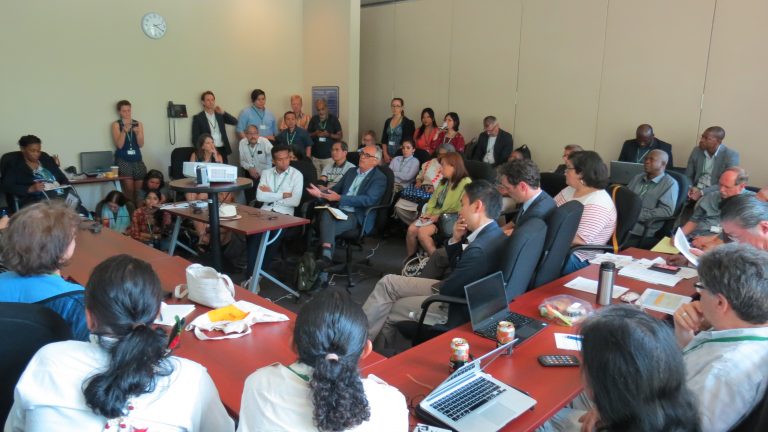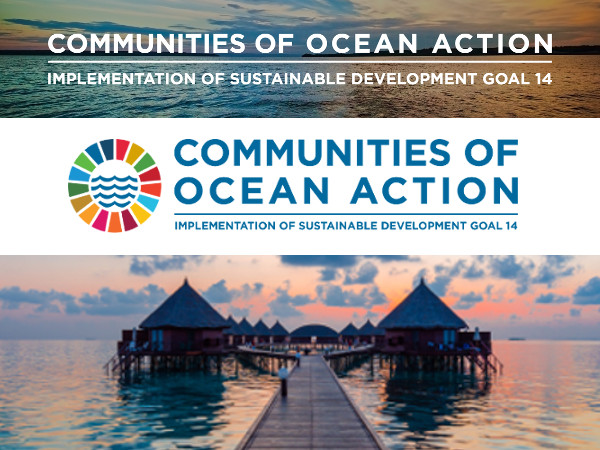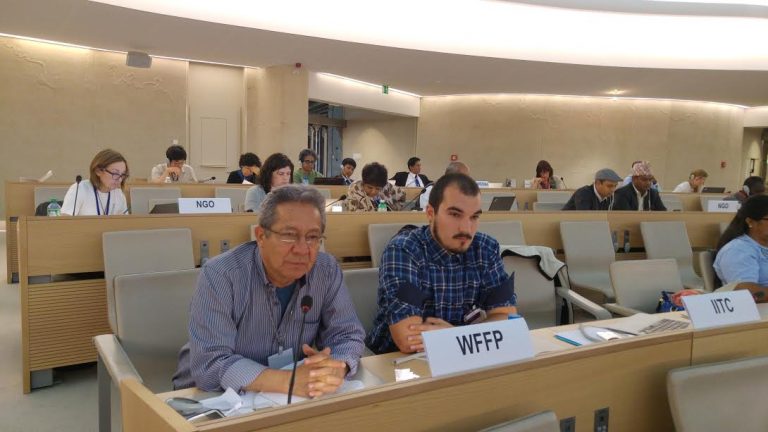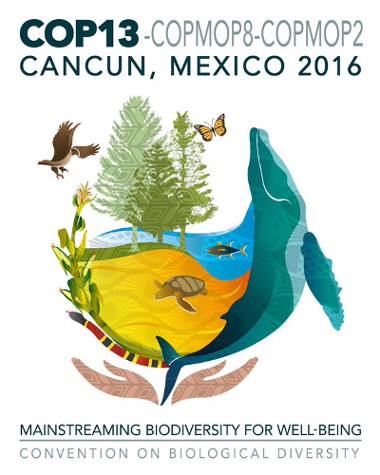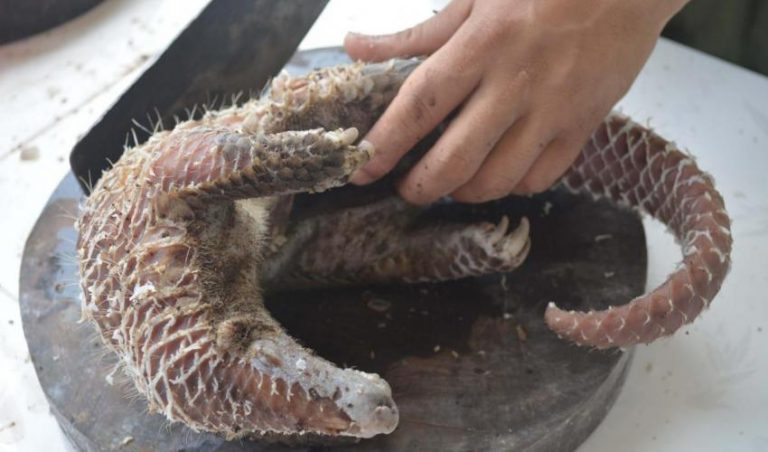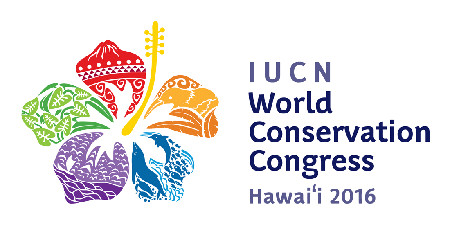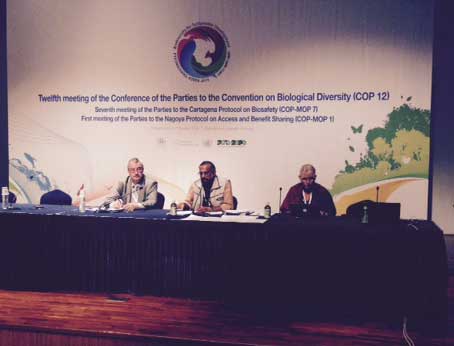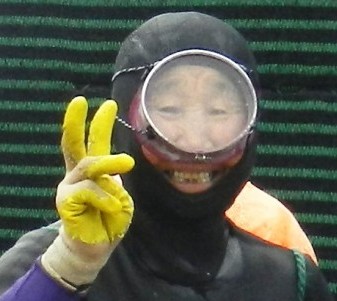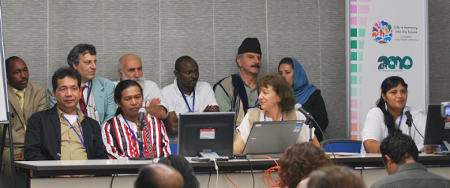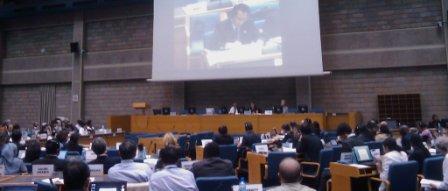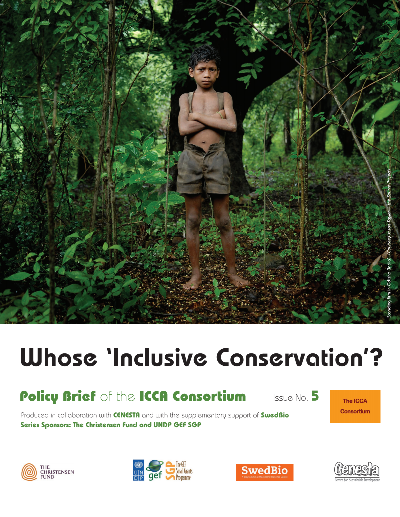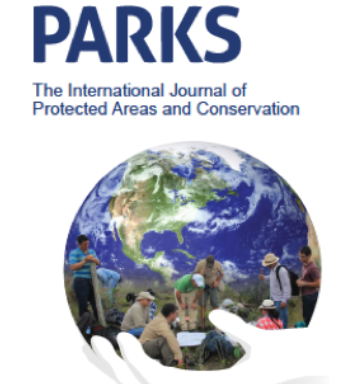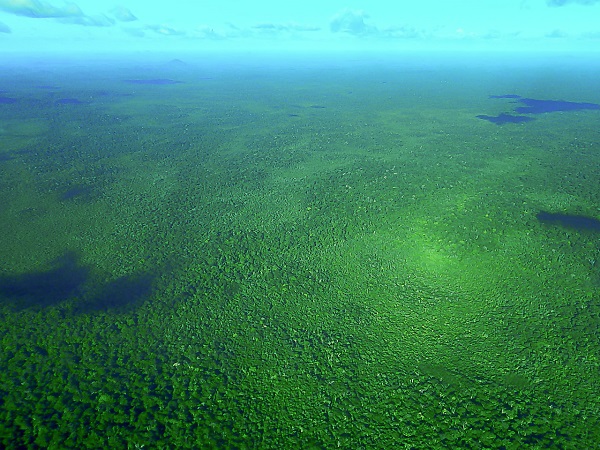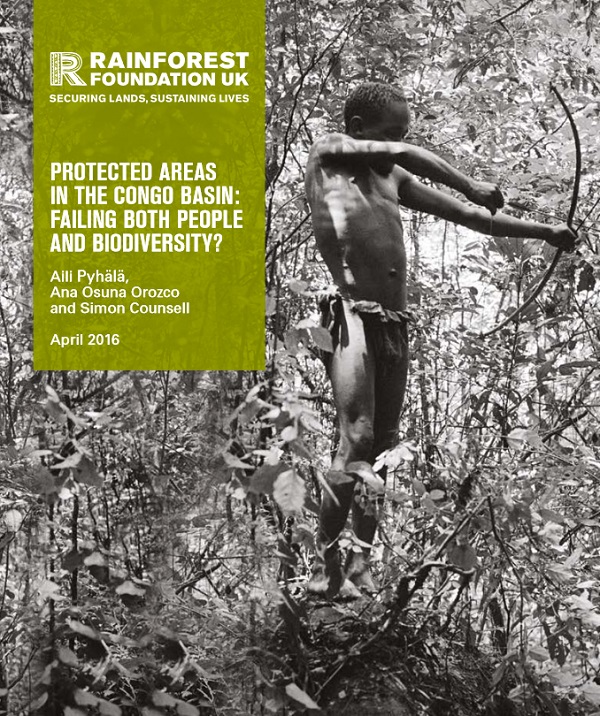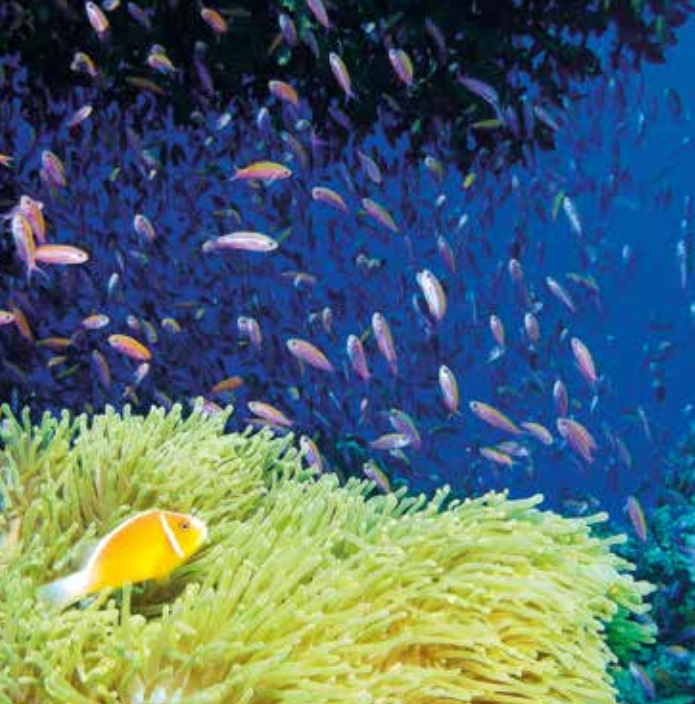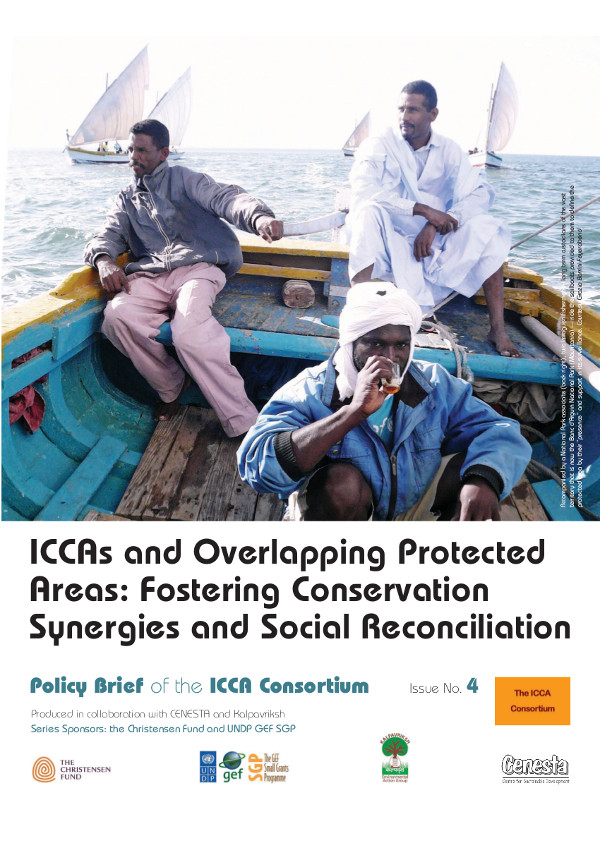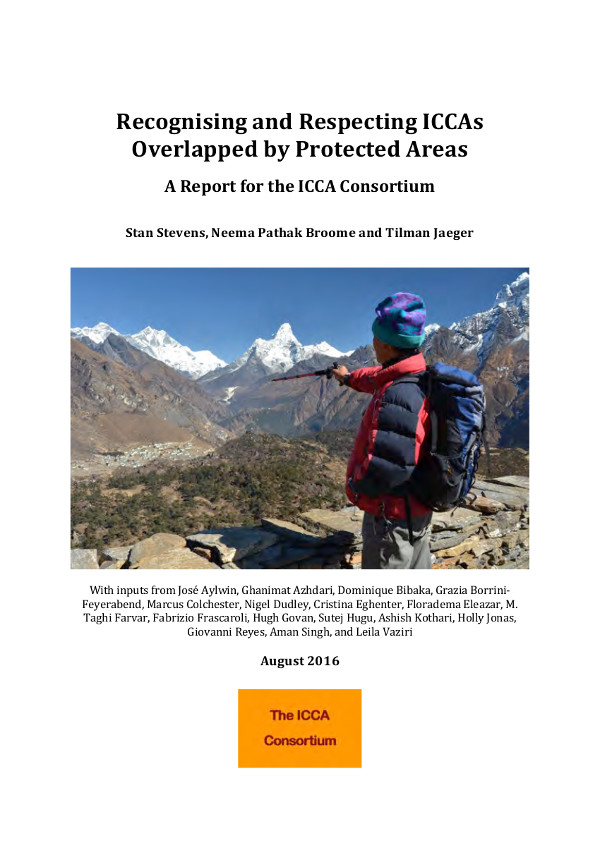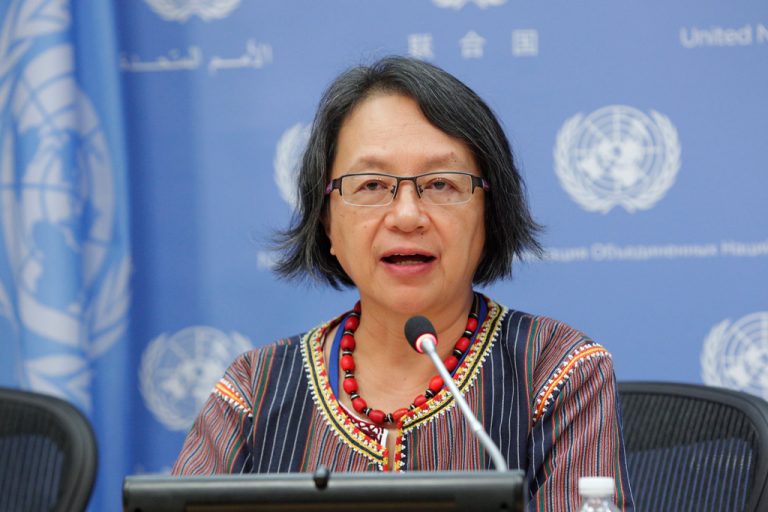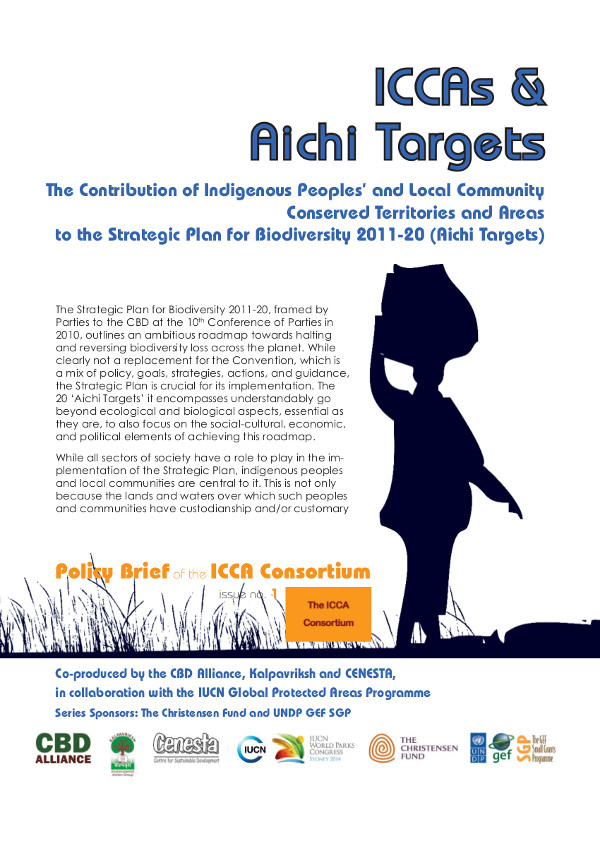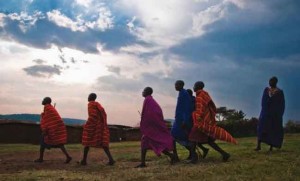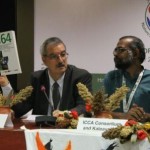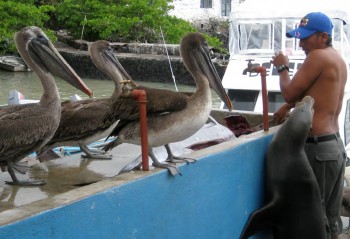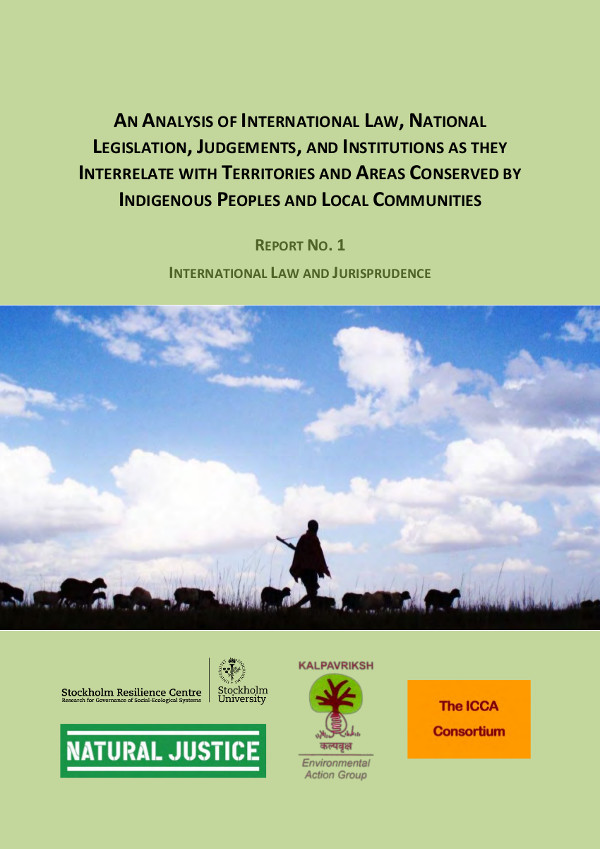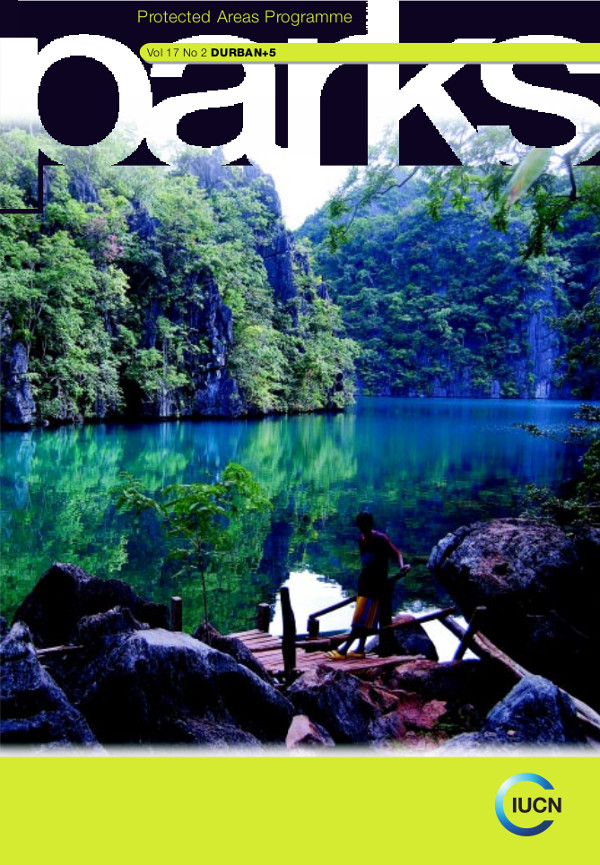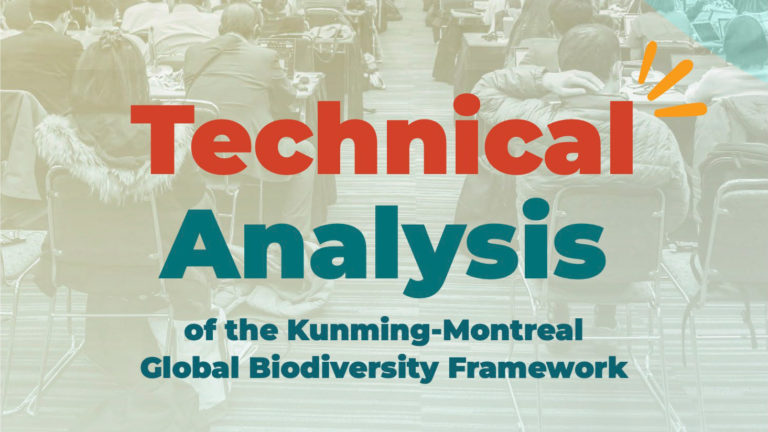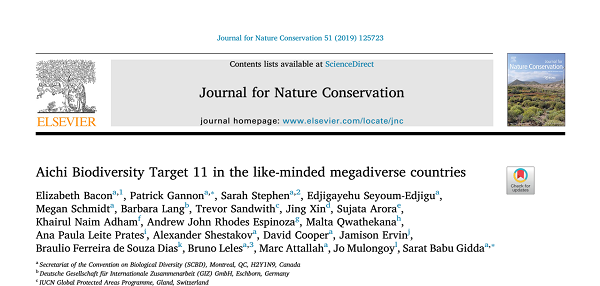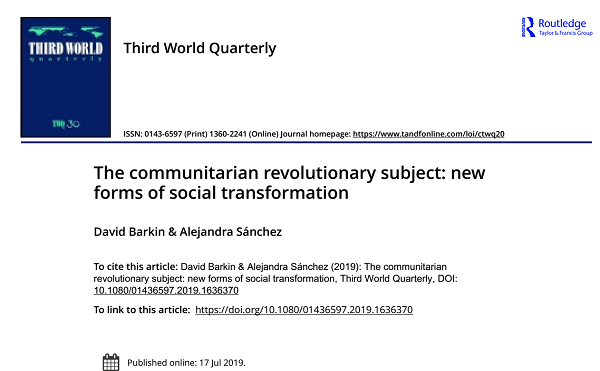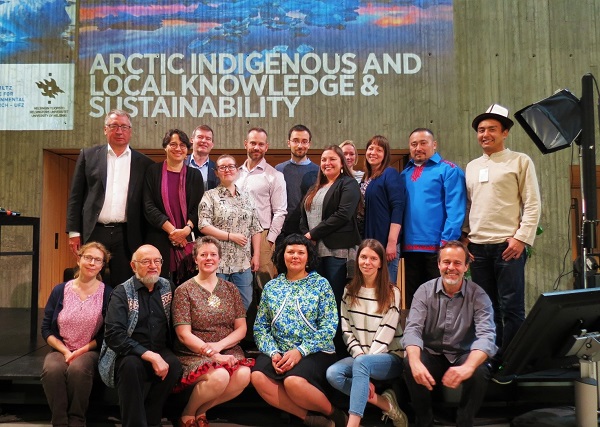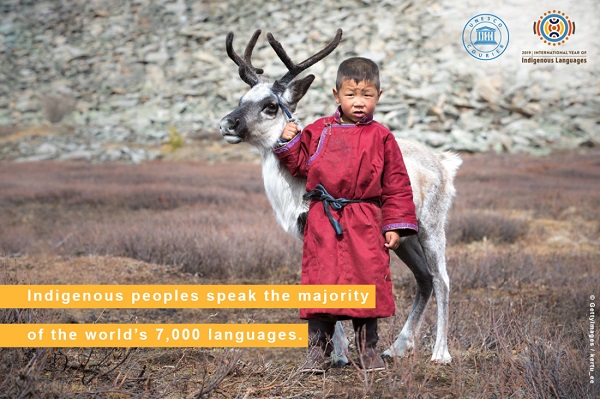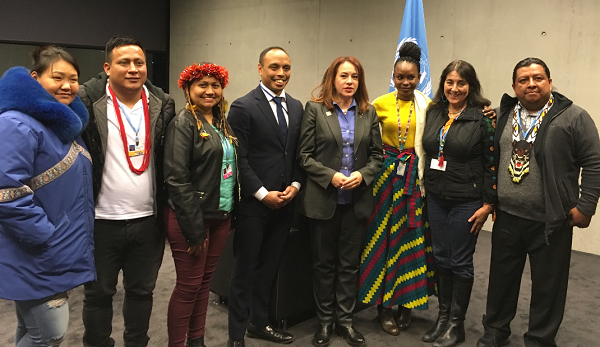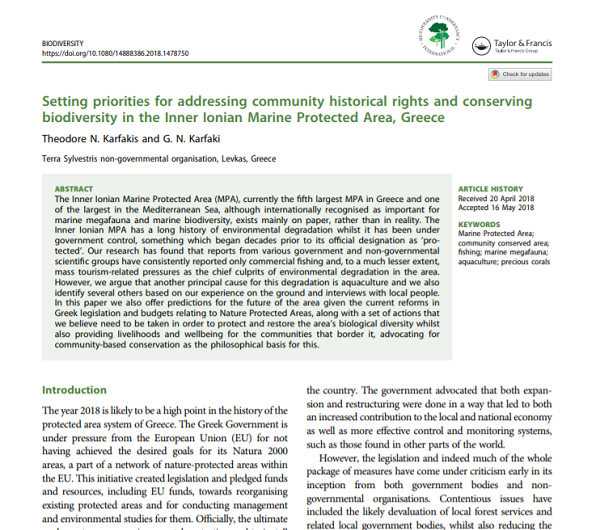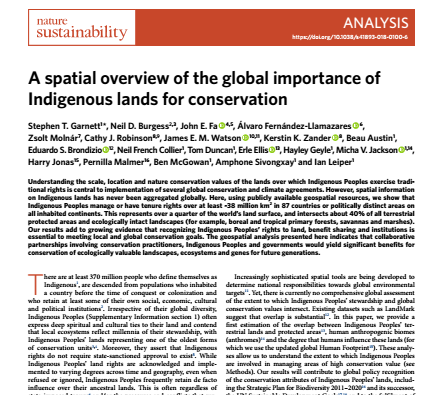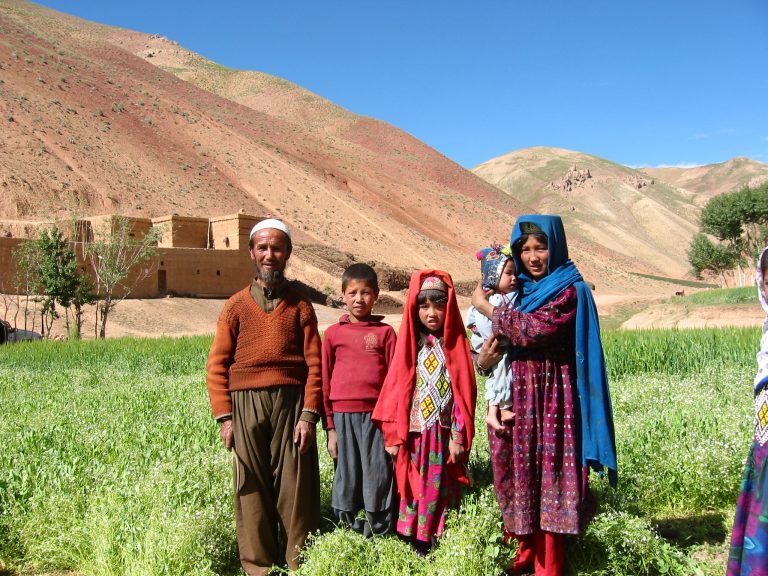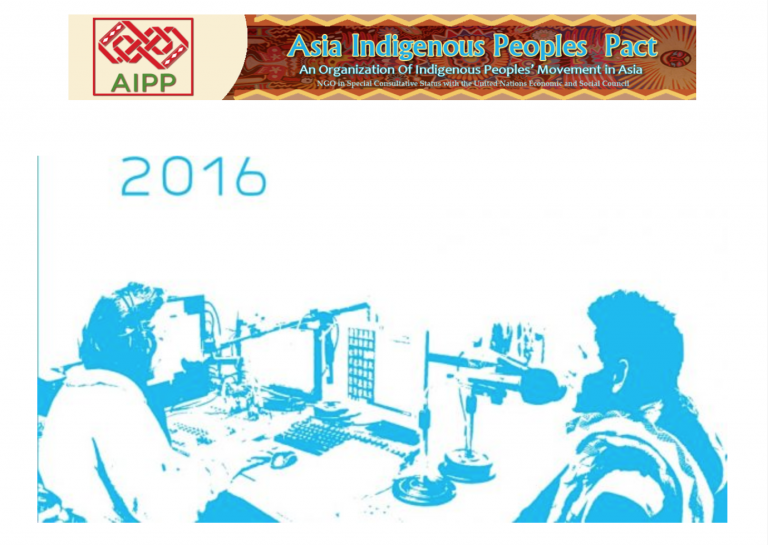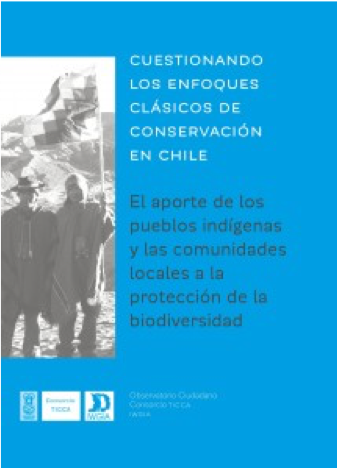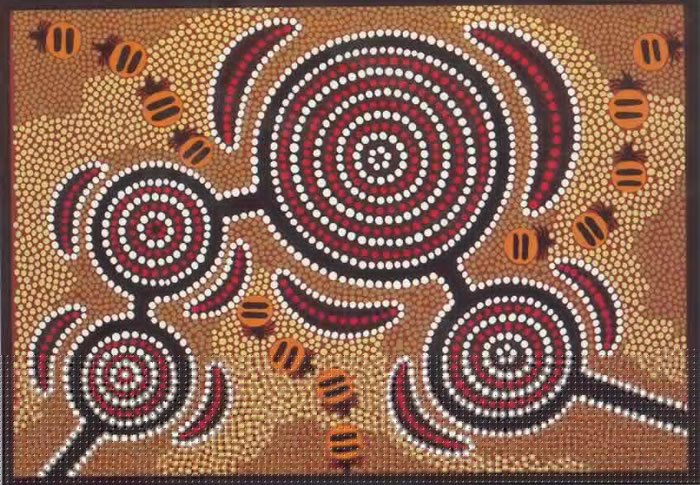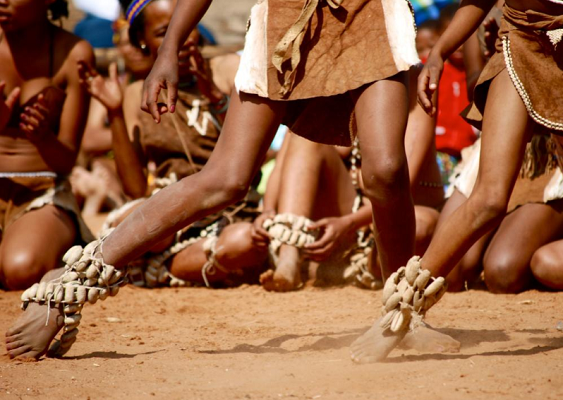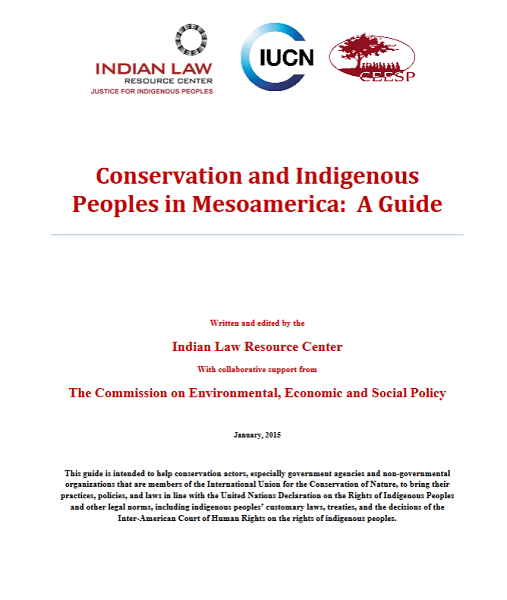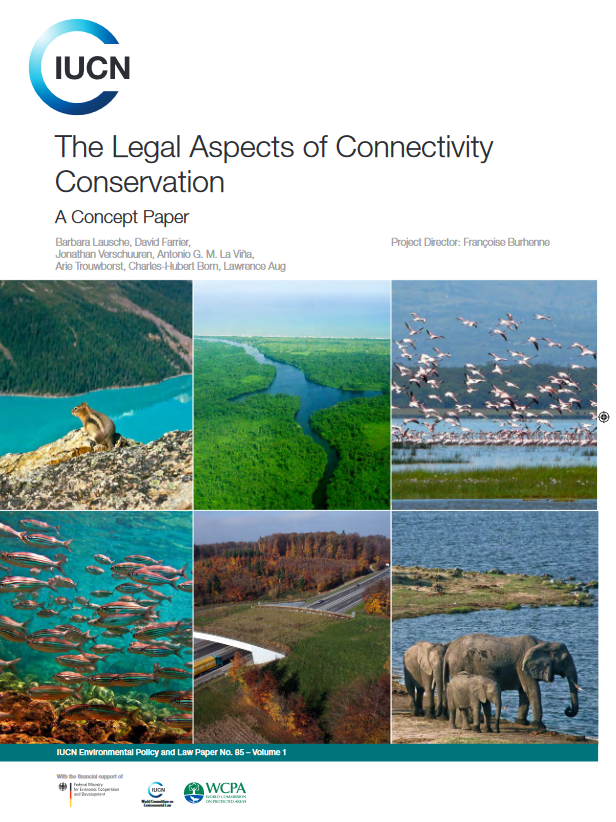The UN Convention on Biological Diversity (CBD) and the International Union for Conservation of Nature (IUCN) are the main sources of international biodiversity law and conservation policy, respectively, that also strongly recognise the rights and roles of indigenous peoples and local communities. In the CBD, this recognition is enshrined in Articles 8(j) and 10(c) and a wide range of decisions of the Conference of the Parties (COP) since the Convention entered into force in 1994. This includes recognition of ICCAs in several decisions since 2004, including in relation to protected areas, financial mechanisms and resource mobilisation, traditional knowledge and customary sustainable use, sustainable development, ecosystem conservation and restoration, climate change, agricultural biodiversity and taxonomy. In IUCN policy, recognition of ICCAs dates back to the 5th World Parks Congress held in Durban (South Africa) in 2003, which helped usher in a ‘new paradigm’ for protected areas, shifting away from only state-centric and exclusionary approaches to more diversified and equitable forms of governance and management, including ICCAs. IUCN members again recognised ICCAs in the 6th World Parks Congress in 2014 and in each quadrennial World Conservation Congress from 2004 to 2016.
With ICCAs widely recognised in both fora, the main priority is now to ensure full and effective implementation of the many supportive provisions at the national and local levels, and in turn to contribute to monitoring and assessments at the international level – particularly in the CBD (a binding treaty). Particular emphasis is placed on ensuring ICCAs are appropriately recognised and supported in accordance with the self-determined priorities and protocols of the ICCA custodians themselves – including through the development and dissemination of good practice guidance in close collaboration with the CBD Secretariat. Another priority is addressing past and continuing injustices in the conservation sector, including situations of overlap between ICCAs and protected areas, evictions from strictly protected areas, and militarised approaches to combatting illegal wildlife trade. The ICCA Consortium and its Members are working with strategic allies such as UN Special Rapporteurs on concrete measures and mechanisms at the international and national levels to help improve conservation actors’ accountability and compliance with international human rights law and standards. This is closely related to work on conservation justice under “Indigenous Peoples’ Rights and Human Rights”
UN Special Rapporteur Report on Children’s Rights and Environmental Protection (2018)
According to Professor John H. Knox, the UN Special Rapporteur on Human Rights and the Environment, “No group is more vulnerable to environmental harm than children. More than 1.5 million children under the age of five lose their lives every year because of pollution and other avoidable environmental harms.” Read more ▸
Launch of UN Environment’s Environmental Defenders Policy
The UN Environment Programme launched its new Environmental Defenders Policy, which proposes how it can promote greater protection for individuals and groups who are defending their environmental rights, and identifies solutions to mitigate the abuse of environmental rights. Read more ▸
Submission to CBD on 2015-2020 Gender Plan of Action
The ICCA Consortium replied to the notification on Progress in implementing the 2015-2020 Gender Plan of Action and efforts related to gender mainstreaming to inform the second meeting of the Subsidiary Body on Implementation of the CBD Read more ▸
ICCAs in Decisions of CBD COP 13, Cancun, 2016
The 13th Conference of the Parties to the Convention on Biological Diversity (CBD COP 12), held in Cancun, Mexico, in 2016, adopted a wide… Read more “ICCAs in Decisions of CBD COP 13, Cancun, 2016” ▸
Resolutions and Recommendations of the 6th IUCN World Conservation Congress , Hawai’i, 2016
· Resolution 6.030: “Recognising and respecting the territories and areas conserved by indigenous peoples and local communities (ICCAs) overlapped by protected areas” (Le lien… Read more “Resolutions and Recommendations of the 6th IUCN World Conservation Congress , Hawai’i, 2016” ▸
UN Special Rapporteur report on the impact of conservation measures on indigenous peoples’ rights
UN Special Rapporteur on the rights of indigenous peoples: report to the UN General Assembly with thematic analysis of conservation measures and their impact… Read more “UN Special Rapporteur report on the impact of conservation measures on indigenous peoples’ rights” ▸
ICCAs in Decisions of CBD COP 12, Pyeongchang, 2014
The 12th Conference of the Parties to the Convention on Biological Diversity (CBD COP 12), held in Pyeongchang, Republic of Korea, in 2014, further… Read more “ICCAs in Decisions of CBD COP 12, Pyeongchang, 2014” ▸
ICCA-relevant results at the World Parks Congress (WPC), Sydney, Australia, November 2014
In addition to a pre-Congress gathering in the Blue Mountains (“Communities Conserving Nature and Culture”) and a post-Congress field visit and capacity exchange on… Read more “ICCA-relevant results at the World Parks Congress (WPC), Sydney, Australia, November 2014” ▸
UN Special Rapporteur on human rights and the environment
UN Special Rapporteur on human rights and the environment (mandate established in 2012)
ICCAs in Decisions of CBD COP 11, Hyderabad, 2012
The 11th Conference of the Parties to the Convention on Biological Diversity (CBD COP 11), held in Hyderabad, India, in 2012, furthered the recognition… Read more “ICCAs in Decisions of CBD COP 11, Hyderabad, 2012” ▸
ICCAs in Decisions of CBD COP 10, Nagoya, 2010
The flagship outcome of the 10th Conference of the Parties to the Convention on Biological Diversity (CBD COP 10), held in Nagoya, Japan, in… Read more “ICCAs in Decisions of CBD COP 10, Nagoya, 2010” ▸
Global Biodiversity Outlook, Nairobi, 2010
This is a link to the main GBO page and gives (on the right hand-top corner) links to the GBO Handbook in Arabic, Chinese,… Read more “Global Biodiversity Outlook, Nairobi, 2010” ▸
ICCAs in Decisions of CBD COP 9, Bonn, 2008
The 9th Conference of the Parties to the Convention on Biological Diversity (CBD COP 9), held in Bonn, Germany, in 2008, was significant in… Read more “ICCAs in Decisions of CBD COP 9, Bonn, 2008” ▸
World Conservation Congress, Barcelona, 2008
World Conservation Congress, Barcelona, 2008 Resolution 4.048 ‘Indigenous Peoples protected Areas and implementation of the Durban Accord’ Resolution 4.049 ‘Supporting Indigenous conservation territories and… Read more “World Conservation Congress, Barcelona, 2008” ▸
CBD COP8 ICCAs in Decisions of CBD COP 8, Curitiba, 2006VIII/24 on Protected Areas, Curitiba, 2006
The 8th Conference of the Parties to the Convention on Biological Diversity (CBD COP 8), held in Curitiba, Brazil, in 2006, was also the… Read more “CBD COP8 ICCAs in Decisions of CBD COP 8, Curitiba, 2006VIII/24 on Protected Areas, Curitiba, 2006” ▸
World Conservation Congress, Bangkok, 2004
Resolutions from the World Conservation Congress, Bangkok, 2004 Resolution 3.012 ‘Governance of natural resources for conservation and sustainable development’ p.11-13 Resolution 3.049 ‘Community Conserved… Read more “World Conservation Congress, Bangkok, 2004” ▸
ICCAs in Decisions of CBD COP 7, Kuala Lumpur, 2004
The 7th Conference of the Parties to the Convention on Biological Diversity (CBD COP 7), held in Kuala Lumpur, Malaysia, in 2004, adopted the… Read more “ICCAs in Decisions of CBD COP 7, Kuala Lumpur, 2004” ▸
ICCAs in the Outcomes of the 5th World Parks Congress (WPC), 2003
Held in Durban, South Africa, from 8-17 September 2003, IUCN’s 5th World Parks Congress was a watershed moment for ICCAs and for indigenous peoples… Read more “ICCAs in the Outcomes of the 5th World Parks Congress (WPC), 2003” ▸
UN Biodiversity Negotiators Must Protect Human Rights to Protect the Planet
ICCA Consortium Members, Honorary members and partners joined forces for an ambitious international workshop that could help change the course of the post-2020 global biodiversity framework – by putting human rights firmly at its centre. Read more ▸
Local Communities and Youth Express Their Views on the New Post-2020 Global Biodiversity Framework, Toward a Shared Vision of Biodiversity in Madagascar
In Madagascar, our Member TAFO MIHAAVO and Malagasy Youth Biodiversity Network have united to gather Fokonolona and youth to analyse the current biodiversity governance and management in the island, and to shape a common future to preserve biodiversity. Read more ▸
Webinar: What Do OECMs Mean for Territories of Life?
In the second webinar organised by ICCA Consortium Member NTFP-EP to build shared capacity and understanding of ICCAs—territories of life in Southeast Asia, Harry Jonas presented ‘other effective area-based conservation measures’ and the challenges and opportunities this new framework for Indigenous peoples and local communities represents. Read more ▸
3rd National ICCA Conference in the Philippines Calls on Congress to Enact the ICCA Bill
For the third time in the Philippines, more than a hundred stakeholders from indigenous people as well as government agencies and civil society gathered to acknowledge recent gains in the recognition of ICCAs institutionalization and elaborate a plan to continue supporting ICCAs in the country. Read more ▸
The ICCA Consortium and WWF discuss what it takes to enhance governance security in Territories of Life
Should the ICCA Consortium collaborate with WWF in support of Territories of Life? Following our work on inclusive conservation in 2018, a workshop was convened in January 2019 to discuss the question and envisage the initiative that may follow… Read more ▸
The ICCA Consortium at SBSTTA 22 and SBI 2
The ICCA Consortium participates in the following meetings of the United Nations Convention on Biological Diversity (CBD) in Montreal, Canada: the 22nd meeting of… Read more “The ICCA Consortium at SBSTTA 22 and SBI 2” ▸
ICCA Consortium members at the UN Oceans Conference (New York, 2017)
Several members and honourary members from the ICCA Consortium participated in this conference whose goal was to be the “game changer that will reverse the decline in the health of our ocean for people, planet and prosperity”. Read more ▸
Open-ended intergovernmental working group on a United Nations declaration on the rights of peasants and other people working in rural areas
From May 12th-19th, 2017, meetings began with the Via Campesina and other organizations or movements of pastoralists, nomads and fishermen. Read more ▸
The Consortium at the 13th Conference of the Parties of the Convention on Biological Diversity (CBD COP 13)
COP 13 was held in Cancun, Mexico, from 4-17 December 2016. The official theme was “Mainstreaming biodiversity for well-being” and State Parties adopted a… Read more “The Consortium at the 13th Conference of the Parties of the Convention on Biological Diversity (CBD COP 13)” ▸
“Beyond Enforcement: Involving indigenous peoples and local communities in combating illegal wildlife trade” workshop (November 2016) in Hanoi, Vietnam
Poaching for illegal wildlife trade is a major focus of current conservation and policy development. Poaching and associated illegal wildlife trade in Southeast Asia… Read more ““Beyond Enforcement: Involving indigenous peoples and local communities in combating illegal wildlife trade” workshop (November 2016) in Hanoi, Vietnam” ▸
The Consortium at the 2016 World Conservation Congress
The ICCA Consortium has participated with a small delegation to the 2016 IUCN World Conservation Congress held in Honolulu (Hawai’i – USA) on 1-10… Read more “The Consortium at the 2016 World Conservation Congress” ▸
ICCA-relevant results at the World Parks Congress (WPC), Sydney, Australia, November 2014
In addition to a pre-Congress gathering in the Blue Mountains (“Communities Conserving Nature and Culture”) and a post-Congress field visit and capacity exchange on… Read more “ICCA-relevant results at the World Parks Congress (WPC), Sydney, Australia, November 2014” ▸
The ICCA Consortium at the CBD COP 12
The ICCA Consortium has been represented by ten delegates (members of the steering committee, honorary members and representatives of members) at the Twelfth meeting… Read more “The ICCA Consortium at the CBD COP 12” ▸
The ICCA Consortium at WILD10 (Salamanca, Spain) October 7-11, 2013
The Consortium joined forces with WILD10 to organise a number of events and offer speakers for presentations during the Indigenous & Community Lands &… Read more “The ICCA Consortium at WILD10 (Salamanca, Spain) October 7-11, 2013” ▸
ICCA Consortium and ICCAs at the Convention on Biological Diversity (CBD) COP-11, Hyderabad, India, 06-21 October 2012
A momentous event for ICCAs! Please follow this link to read more on ICCAs in Decisions of CBD COP 11. A main objective of… Read more “ICCA Consortium and ICCAs at the Convention on Biological Diversity (CBD) COP-11, Hyderabad, India, 06-21 October 2012” ▸
The ICCA Consortium at IUCN World Conservation Congress (WCC), Jeju, South Korea, 6-15 September, 2012
About thirty people affiliated with the ICCA Consortium attended Jeju for the Vth IUCN WCC. The Consortium organised and attended a wide range of… Read more “The ICCA Consortium at IUCN World Conservation Congress (WCC), Jeju, South Korea, 6-15 September, 2012” ▸
SBSTTA, Nairobi, 2010
SBSTTA, Nairobi, 2010 The Subsidiary Body on Scientific, Technical and Technological Advice (SBSTTA), Fourteenth Meeting. Please see, from the document linked above, the sections… Read more “SBSTTA, Nairobi, 2010” ▸
Global Biodiversity Outlook, Nairobi, 2010
This is a link to the main GBO page and gives (on the right hand-top corner) links to the GBO Handbook in Arabic, Chinese,… Read more “Global Biodiversity Outlook, Nairobi, 2010” ▸
ICCAs at COP 10 (Nagoya, October 2010)—some good news, some disappointments, some fresh worries… and much work ahead!
The tenth Conference of the Parties (COP 10) of the Convention on Biological Diversity (CBD) held in the second half of October 2010 in… Read more “ICCAs at COP 10 (Nagoya, October 2010)—some good news, some disappointments, some fresh worries… and much work ahead!” ▸
Governance of protected areas and ICCAs highlighted at CBD SBSTTA, Nairobi May 2010
Governance of protected areas and ICCAs (comprising indigenous peoples’ territories and areas conserved by indigenous peoples and local communities) featured centrally in the discussion… Read more “Governance of protected areas and ICCAs highlighted at CBD SBSTTA, Nairobi May 2010” ▸
ICCA Consortium Policy Brief no 5
The term ‘inclusive conservation’ has recently been adopted by the Global Environment Facility (GEF) in its 2018-2020 programme for biodiversity financing. In this context, the ICCA Consortium proposes a definition of ‘inclusive conservation’ and specific recommendations for legislators, policy makers and other conservation actors willing to pursue it. Read more ▸
Special Issue of PARKS on OECMs
The IUCN World Commission on Protected Areas has just released a special issue of its peer-reviewed journal PARKS: The International Journal of Protected Areas and Conservation, focusing on Other-Effective Conservation Measures (OECMs). Read more ▸
Will ‘other effective area-based conservation measures’ increase recognition and support for ICCAs?
This paper reflects on IUCN’s ongoing progress to develop technical guidance on “other effective area-based conservation measures” (OECMs) and begins to explore under what conditions OECMs might make a positive contribution to ICCAs. Read more ▸
Protected Areas in the Congo Basin: Failing both people and biodiversity?
Report: “Protected Areas in the Congo Basin: Failing both people and biodiversity?” Aili Pyhälä, Ana Osuna Orozco and Simon Counsell Rainforest Foundation UK, 2016
Local Biodiversity Outlooks
Local Biodiversity Outlooks, Forest Peoples Programme, CBD and IIFB, 2016 Summary (from website): This publication presents the perspectives and experiences of indigenous peoples and… Read more “Local Biodiversity Outlooks” ▸
ICCA Consortium Policy Brief no 4
ICCAs and Overlapping Protected Areas: Fostering Conservation Synergies and Social Reconciliation. Policy Brief of the ICCA Consortium, Issue No.4, ICCA Consortium. Stevens, S., T.… Read more “ICCA Consortium Policy Brief no 4” ▸
ICCA Consortium Policy Brief no 4 – Companion document
Stevens, S., N. Pathak Broome and T. Jaeger with J. Aylwin, G. Azhdari, D. Bibaka, G. Borrini-‐Feyerabend, M. Colchester, N. Dudley, C. Eghenter, F.… Read more “ICCA Consortium Policy Brief no 4 – Companion document” ▸
Protected areas as a threat to the Sustainable Development Goals
“Protected areas as a threat to the Sustainable Development Goals”, Simone Lovera (Global Forest Coalition), July 2016
Report to the UN General Assembly from Victoria Tauli-Corpuz, UN Special Rapporteur on the Rights of Indigenous Peoples
Conservation and indigenous peoples’ rights Victoria Tauli-Corpuz, UN Special Rapporteur on the Rights of Indigenous Peoples Report to the UN General Assembly, July 2016
Protected Areas, Country and Value: The Nature–Culture Tyranny of the IUCN’s Protected Area Guidelines for Indigenous Australians
Peer-reviewed article: “Protected Areas, Country and Value: The Nature–Culture Tyranny of the IUCN’s Protected Area Guidelines for Indigenous Australians”, Emma Lee, Antipode, Volume 48,… Read more “Protected Areas, Country and Value: The Nature–Culture Tyranny of the IUCN’s Protected Area Guidelines for Indigenous Australians” ▸
ICCA Briefing Note no1
ICCAs and Aichi Targets: The Contribution of Indigenous Peoples’ and Local Community Conserved Territories and Areas to the Strategic Plan for Biodiversity 2011-20. Kothari,… Read more “ICCA Briefing Note no1” ▸
ICCAs and Key Biodiversity Areas – Threats and Opportunities
ICCAs and Key Biodiversity Areas – Threats and Opportunities, Grazia Borrini-Feyerabend, Based initially on discussions between Grazia Borrini-Feyerabend and Nigel Dudley in Switzerland, in… Read more “ICCAs and Key Biodiversity Areas – Threats and Opportunities” ▸
Communities, Conservation and Development
Communities, conservation and development, Ashish Kothari, Biodiversity 2013
Conservation as if People Also Mattered: Policy and Practice of Community-based Conservation
Peer-reviewed article: “Conservation as if People Also Mattered: Policy and Practice of Community-based Conservation“, Ashish Kothari, Philip Camill, Jessica Brown, Introduction of: Conservation & Society, January-March 2013, Volume… Read more “Conservation as if People Also Mattered: Policy and Practice of Community-based Conservation” ▸
Legal Review No 1 International Law and Jurisprudence
Legal Review No 1 International Law and Jurisprudence This report is part of a larger study conducted by the ICCA Consortium between 2011-2012, which… Read more “Legal Review No 1 International Law and Jurisprudence” ▸
PARKS – the journal of WCPA
These specific issues are particularly relevant for ICCAs: Durban +5 (Vol 17, No 2) Community Conserved Areas (Vol 16, No 1) Conservation Partnerships in… Read more “PARKS – the journal of WCPA” ▸
Technical Analysis of the Global Biodiversity Framework
By the ICCA Consortium In the early hours of December 18, 2022, Parties to the UN Convention on Biological Diversity (CBD) adopted the Kunming-Montreal… Read more “Technical Analysis of the Global Biodiversity Framework” ▸
Aichi Biodiversity Target 11 In The Like-Minded Megadiverse Countries
This article, from the Journal for Nature Conservation, recognizes the central role of ICCAs – territories of life in conservation. It demonstrates that their recognition among academics is increasing dramatically. Read more ▸
The Communitarian Revolutionary Subject: New Forms of Social Transformation
The hope for a unique revolutionary actor in the XX Century evaporated as a result of the weaknesses of social organizations. In the context of Mexico, this paper, written by David Barkin, ICCA Consortium Honorary member, and Alejandra Sánchez, examines the potential of an almost-forgotten group of revolutionary actors: the indigenous and peasant communities. Read more ▸
Celebrating the Recently Launched IPBES Global Assessment
Álvaro Fernández-Llamazares and Aibek Samakov, Honorary members of the ICCA Consortium, participated in the elaboration of the Global Assessment on Biodiversity and Ecosystem Services, organised by the Intergovernmental Science-Policy Platform on Biodiversity and Ecosystem Services (IPBES). Read more ▸
EMRIP Statement on the International Year of Indigenous Languages 2019
The UN Expert Mechanism on the Rights of Indigenous Peoples (EMRIP) commemorates the launch of the International Year of Indigenous Languages, acknowledging the critical role of Indigenous ecological knowledge for maintaining biodiversity and addressing climate change. Read more ▸
Outputs on the COP 24 of the UNFCCC
UNFCCC’s 24th Conference of the Parties began with great expectations. Despite some progress such as the creation of the Local Communities and Indigenous Peoples Platform, COP24 overall was marred by insufficient ambition and action on crucial issues. Read more ▸
Setting priorities for addressing community historical rights and conserving biodiversity in the Inner Ionian Marine Protected Area, Greece
This article, co-authored by Ted Karfakis, from Terra Sylvestris, a Member of the ICCA Consortium, explores reasons for the environmentally degraded state of the Inner Ionian Marine Protected Area and suggests actions to restore its biodiversity, while providing for the wellbeing of the local communities who advocate for community-based conservation as a philosophical basis. Read more ▸
A spatial Overview of The Global Importance of Indigenous Lands for Conservation
A spatial overview of the global importance of Indigenous lands for conservation, by Stephen T. Garnett, Neil D. Burgess, John E. Fa , Álvaro Fernández-Llamazares ,… Read more “A spatial Overview of The Global Importance of Indigenous Lands for Conservation” ▸
Collective Land Ownership in the 21st Century: Overview of Global Trends
By: Liz Alden Wily Abstract Statutory recognition of rural communities as collective owners of their lands is substantial, expanding, and an increasingly accepted element… Read more “Collective Land Ownership in the 21st Century: Overview of Global Trends” ▸
Radio Program Guide on the UNDRIP
Asia Indigenous Peoples Pact (AIPP) believes that media has an important role to play in the promotion and protection of indigenous peoples’ rights as well as their inclusive participation in decision making and social equity. Read more ▸
Cuestionando los enfoques clásicos de conservación en Chile: el aporte de los pueblos indígenas y las comunidades locales a la protección de la biodiversidad
Por: Observatorio Ciudadano, Miembro del Consorcio TICCA – y el Consorcio TICCA La relación entre pueblos indígenas, comunidades locales y conservación de la naturaleza… Read more “Cuestionando los enfoques clásicos de conservación en Chile: el aporte de los pueblos indígenas y las comunidades locales a la protección de la biodiversidad” ▸
Current ICCA-related issues in Northern Europe
By: Aili Pyhälä, Steering Committee Member with special responsibility for Northern Europe and Russia In June 2017 I had the privilege of being part of… Read more “Current ICCA-related issues in Northern Europe” ▸
Whakatane Mechanism
Tool: “Whakatane Mechanism” The aim of the Whakatane Mechanism is to assess the situation in different protected areas around the world and, where people… Read more “Whakatane Mechanism” ▸
Conservation Watch
Tool: “Conservation Watch” Conservation Watch aims to facilitate discussion about the real impacts of protected area policy and practice in the Global South. The… Read more “Conservation Watch” ▸
From boardroom to kitchen table: Shifting the power seat of Indigenous governance in protected area management
From boardroom to kitchen table: Shifting the power seat of Indigenous governance in protected area management Emma Lee and Tran Tran, 2016 Australian Aboriginal… Read more “From boardroom to kitchen table: Shifting the power seat of Indigenous governance in protected area management” ▸
New steps of change: looking beyond protected areas to consider other effective area-based conservation measure
New steps of change: looking beyond protected areas to consider other effective area-based conservation measure, Harry D. Jonas, Valentina Barbuto, Holly C. Jonas, Ashish… Read more “New steps of change: looking beyond protected areas to consider other effective area-based conservation measure” ▸
Community managed forest and forest protected areas: An assessment of their conservation effectiveness across the tropics
Community managed forest and forest protected areas: An assessment of their conservation effectiveness across the tropics, Luciana Porter-Bolland, Edward A. Ellis, Manuel R. Guariguata,… Read more “Community managed forest and forest protected areas: An assessment of their conservation effectiveness across the tropics” ▸
A global assessment of the social and conservation outcomes of protected areas
A global assessment of the social and conservation outcomes of protected areas, 2015, J. A. Oldekop, G. Holmes, W. E. Harris, and K. L.… Read more “A global assessment of the social and conservation outcomes of protected areas” ▸
Conservation and Indigenous Peoples in Mesoamerica: A Guide
Conservation and Indigenous Peoples in Mesoamerica: A Guide, Written and edited by the Indian Law Resource Center, With collaborative support from The Commission on… Read more “Conservation and Indigenous Peoples in Mesoamerica: A Guide” ▸
The Legal Aspects of Connectivity Conservation – A Concept Paper
The Legal Aspects of Connectivity Conservation – A Concept Paper, Lausche, Barbara, David Farrier, Jonathan Verschuuren, Antonio G. M. La Viña, Arie Trouwborst, Charles-Hubert Born,… Read more “The Legal Aspects of Connectivity Conservation – A Concept Paper” ▸
First published on 05/29/2016, and last updated on 07/03/2017

